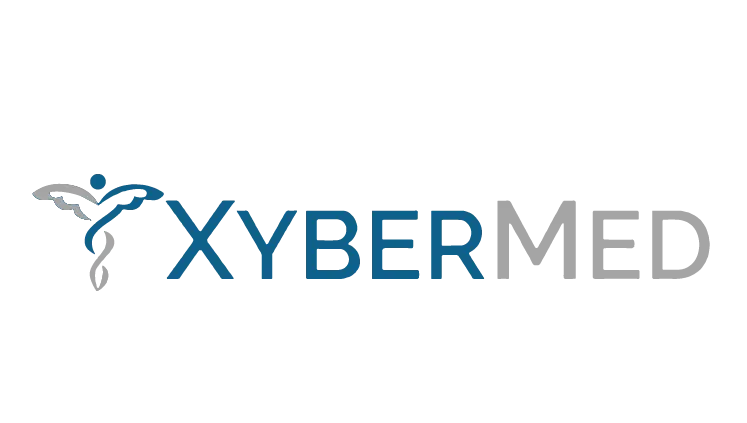Our Blog

How to Ensure Compliance in Healthcare Billing Claims Processing
What is health care Billing compliance
Firstly, compliance is an act of abiding by and implementing rules and regulations in one's practice as per the law. Thus, compliance of billing claims in healthcare is a practice to ensure that all insurance claims and methods of billing are performed under the set guidelines by the state law. As its importance can be gauged by the fact that Fraud billing claims are estimated to cost over $100 billion annually alone in the US. Which is up 3% to 10% of total healthcare spending. And, to address this issue medical providers, government agencies, and billing companies must prioritize healthcare claims and billing compliance
Importance of Billing Compliance
Compliance in healthcare billing ensures several benefits, which are as follows;
It protects patients from overcharges and prevents billing errors.
Compliance also improves the overall patient experience due to the standard service delivery during their treatment.
Likewise, this helps in preventing fraud and abuse in the system.
It ensures providers are paid fairly, accurately, and on time.
It maintains the integrity of the organization and protects its reputation.
Finally, it shields medical facilities from liability related to fraudulent billing.
Common Challenges in Healthcare Billing Compliance
Managing compliance in healthcare billing claims is like solving a Rubik's Cube. Where practitioners face new challenges daily, thus, this complex layering of issues often results in billing errors, which can lead to compliance challenges for healthcare providers, whether intentional or accidental.
The list of most common compliance issues and their reason for happening is defined below outlines as the following;
Coding errors
Using inaccurate or outdated billing codes leads to inconsistencies that later become major issues in an organization’s compliance as these errors can result in claim denials and reimbursement delays. Thus, accurate and up-to-date billing codes are crucial to maintaining workflow efficiency and financial integrity.
Upcoding
Upcoding is a black-hat practice in billing where coders bill for more expensive services to patients than what was provided. This is a fraudulent activity that leads to overpayment from insurers or government programs. Likewise, it increases revenue unethically but poses severe penalties to the auditors including fines and legal action. In addition to this, this practice also damages the trust of healthcare facilities.
Under coding
Under coding is the practice of omitting codes intentionally or unintentionally for services provided to patients. Since it reduces the reimbursement ratio and may avoid scrutiny in the future from insurers. Thus, Under coding leads to revenue leakages and compliance issues.
Duplicate billing
Duplicate billing refers to the submission of multiple identical insurance claims for the same service. This can result in overpayments from insurance companies and is also considered as non-compliant. It leads to potential audits of firms with financial penalties, and lawful actions against providers.
Unbundling
It is an unethical practice to separate services into individual claims when it was provided as a comprehensive service suited to patients. Thus, Unbundling is practiced, increasing the reimbursement ratio of practitioners. However, it is severely penalized by the audit firms as per the law.
Fraudulent activities
Fraudulent activities include submitting false insurance claims or do not consciously return overpayments. These actions lead to a higher reimbursement ratio. However, engaging in fraud, especially in healthcare services results in severe legal actions including fines, audits, and criminal charges.
Effective compliance strategies are crucial for mitigating these risks and maintaining accurate and reliable billing practices. However, before delving into the methods for ensuring billing compliance it is important to first review the key laws related to compliance. Where practitioners must adhere to these outlined laws while doing their billing claim processes.
Major Laws Related to the Billing Compliance
False Claims Act (FCA)
FCA Prohibits billers from submitting false or fraudulent claims for payment. As it enforces accountability and puts in check the wrong billing practices.
Anti-Kickback Statute Law
AKS advised practitioners to not offer or receive kickbacks for referrals or services to patients upon clinic referral for which they have personal financial relationships.
Physicians Self-Referral Law
This law, also called Stark Law, restricts medical professionals from referring patients to those facilities or practitioners with whom they have direct family relationships. Patient referrals should be based on sole patient treatment needs. And this need not be used to monetize for personal gains.
HIPPA Compliance Regulations Act (1996)
Health-Insurance Portability and Accountability Act mandates practitioners to secure patient data privacy by safely handling of health records. Thus, this law was enacted to protect citizens' personal information from cyber-attacks and to maintain patient record confidentiality.
No Surprises Act
The No Surprises Act was introduced to protect patients from unexpected medical bills. As it ensures transparency in the billing charge sheet and prevents surprise charges. This law helps patients to avoid unexpected billing costs from medical services they did not anticipate.
As we outlined the major medical billing compliance laws to follow for practitioners in their billing work. Now, we will discuss how to ensure compliance in billing by adhering to these laws.
How to Ensure Compliance in Healthcare Billing Claims
Ensuring compliance with your healthcare facilities is crucial for both you and your patients’ health. And it is important to understand the reasons behind the billing compliance rules. Thus, learning how to implement compliance best practices to limit potential liability, identify ethical practices, and understand billing challenges is crucial for healthcare providers.
Follow these best practices to avoid billing and coding issues billing companies like XyberMed.
suggest healthcare providers that should;
Establish effective policies, procedures, and practices that are auditable
This is to include disciplinary actions for non-compliance and financial incentives for compliance in your patient billing. Likewise, it is also essential that healthcare providers anticipate issues and create a structure that allows billing and claims to remain compliant.
Maintain a hotline or other system to allow people to anonymously report issues and investigate all reports.
The Office of Inspector General advised in its billing compliance guidelines that each provider must maintain an anonymous reporting system. As, upon urgency, its employees and patients can alert you if there is a problem.
Thoroughly Train Your Staff
From day one, make sure your employees know the healthcare billing compliance rules, as well as the federal and state laws that affect your business. Thus, provide regular check-in training and communicate all new changes and why they are necessary.
Ensure your organization has a compliance representative.
Understanding the medical jargon of healthcare compliance is difficult. Luckily, trained professional billing companies, like XyberMed, who know how to interpret, develop, and maintain processes, policies, and procedures that promote legal and ethical business practices.
Monitor billing claims routinely, also perform regular audits and contract reviews.
Stay accountable by consistently auditing and monitoring your organization’s statements and practices. You can have someone work internally to do this or hire an independent third party that specializes in health care billing compliance. Implement corrective actions when needed.
Conclusion
In conclusion, healthcare billing compliance is critical for protecting both patients and healthcare providers, ensuring accuracy, transparency, and adherence to legal standards. The complexities of billing regulations, coupled with the risks of non-compliance, highlight the importance of implementing effective strategies to prevent errors and fraud. Companies like XyberMed play a crucial role in helping healthcare providers navigate these challenges. By offering expert billing services and ensuring compliance with industry laws, XyberMed allows medical practices to focus on delivering quality patient care while safeguarding their financial integrity and reputation.

Outsource medical billing service to XyberMed. Boost your practice with affordable, expert billing! Get started today and see the results.
Address:
755 Waverly Ave, Suite 100A Holtsville, NY 11742-1125 USA
